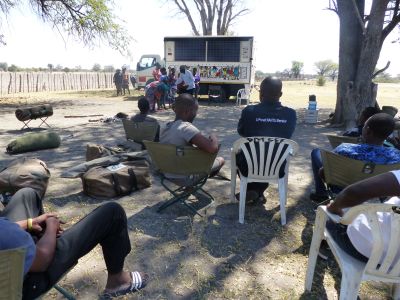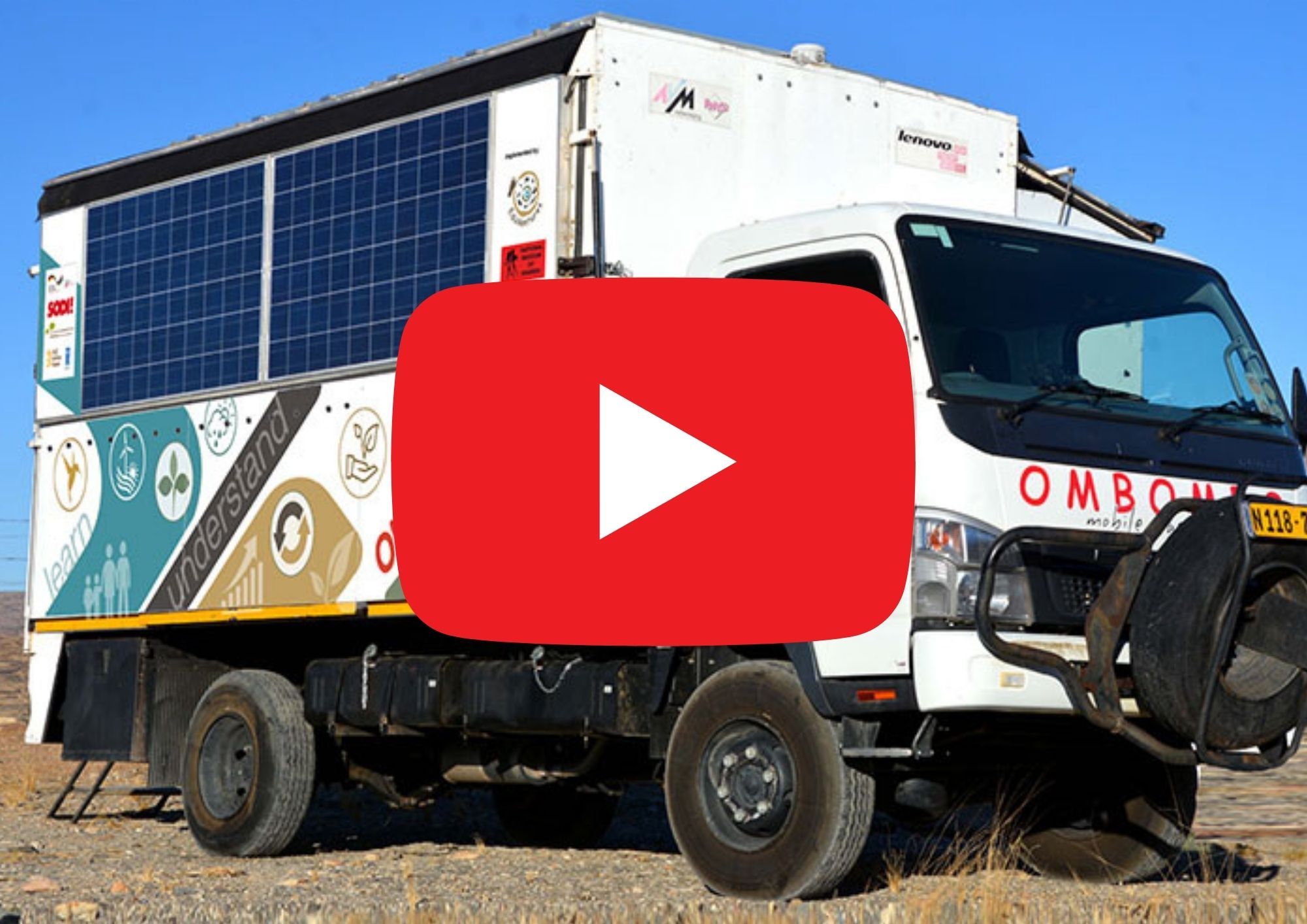EduMobile
The EduMobile, also known as the Ombombo Mobile Classroom, is a pioneering initiative in environmental education and the first of its kind in Southern Africa. Established in 2013 and launched in 2014 with support from SODI e.V., the UNDP Small Grants Programme (SGP), and the Environmental Investment Fund (EIF), the project transforms a six-ton truck into a fully functional, mobile classroom. This innovative concept is designed to deliver quality, hands-on environmental education (EE)/Education for Sustainable Development (ESD) to some of Namibia’s most underserved and remote communities.

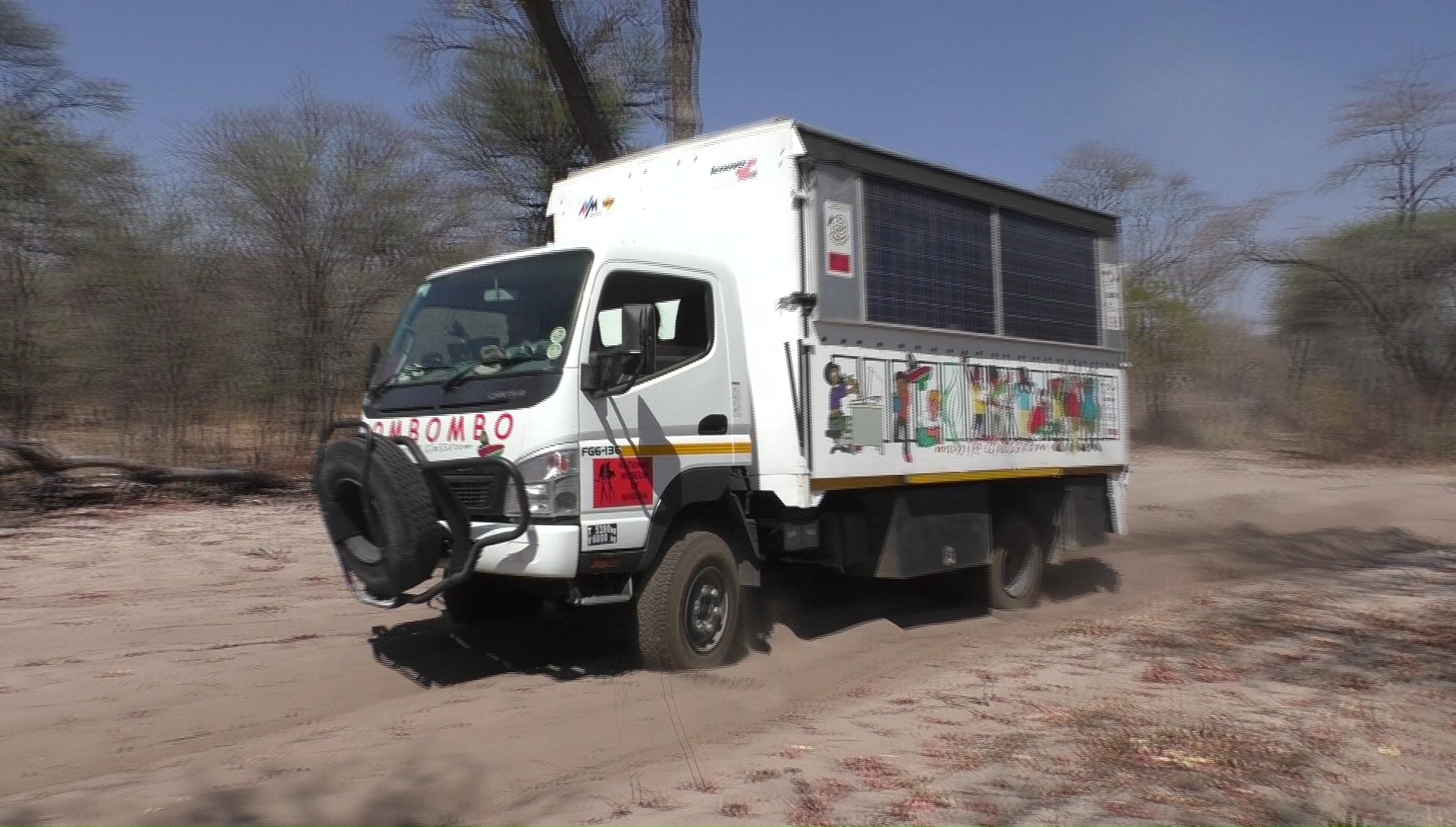
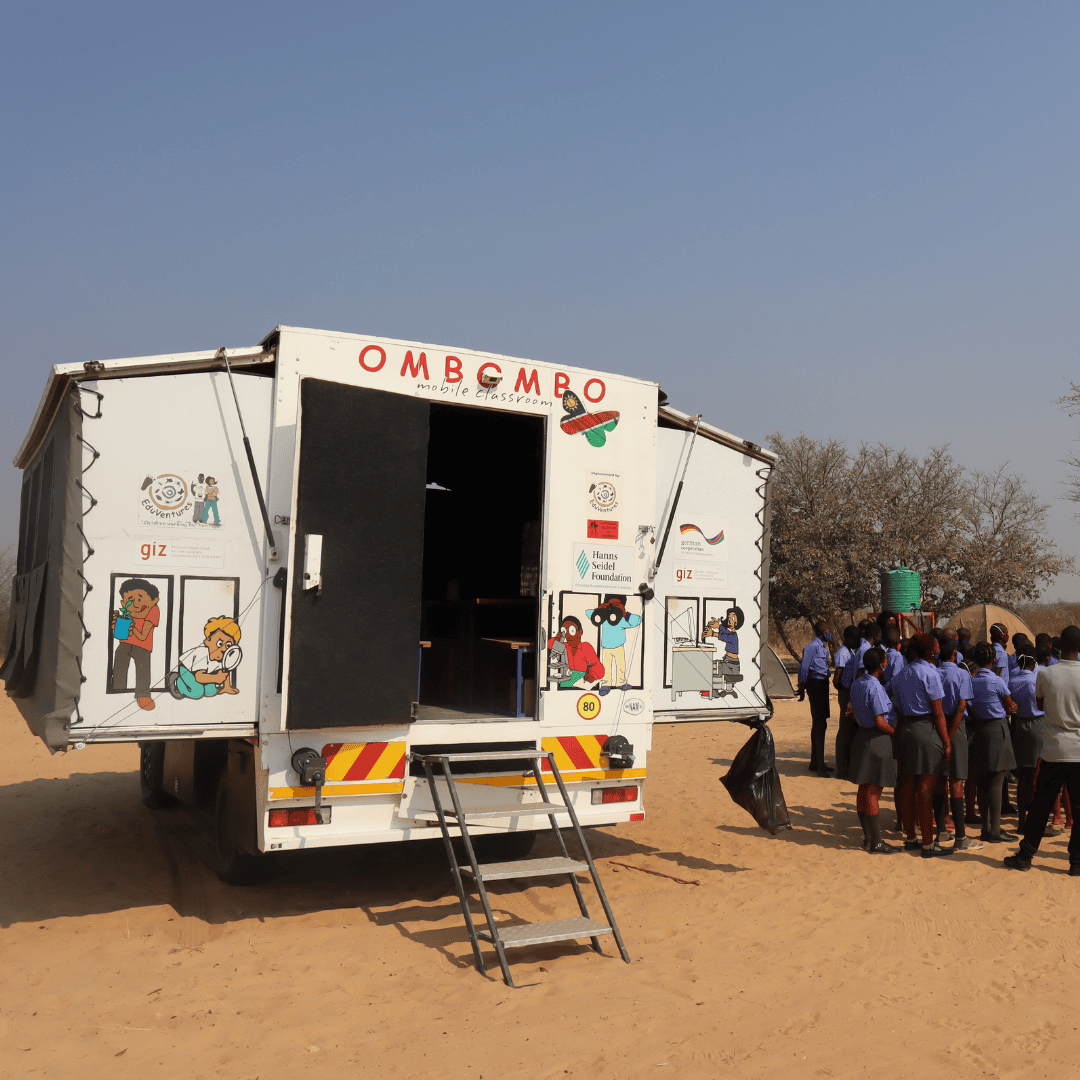
Rationale and Background
EduVentures, since its inception in 2003, has engaged learners and communities through scientific expeditions across Namibia. These expeditions, conducted in collaboration with institutions such as the National Museum of Namibia and the National Botanical Research Institute, focused on collecting biological specimens and fostering environmental awareness. These early efforts revealed a pressing gap in access to environmental education, particularly in rural areas where infrastructure and learning opportunities are limited. In response, the EduMobile was conceived to bridge this gap, bringing experiential learning directly to the learners and fostering environmental awareness through interactive and contextually relevant programming.
Design and Educational Focus
The EduMobile is equipped with solar panels, batteries, a Smart board, and fixed classroom furniture, allowing it to operate independently and sustainably in off-grid settings, making it ideal for reaching isolated schools. Developed in consultation with the National Institute for Educational Development (NIED), the EduMobile supports the national curriculum while introducing a dynamic, practical approach to learning. It primarily targets upper primary and secondary learners, focusing on natural and social sciences, and incorporates themes such as climate change, biodiversity loss, and sustainable resource use.
Structured as a five-day program conducted outside normal classroom hours to avoid interfering with formal teaching, the EduMobile creates opportunities for learners to engage directly with environmental issues in their own communities. Under professional guidance, participants explore scientific concepts through hands-on modules and group activities that encourage observation, critical thinking, and problem-solving.
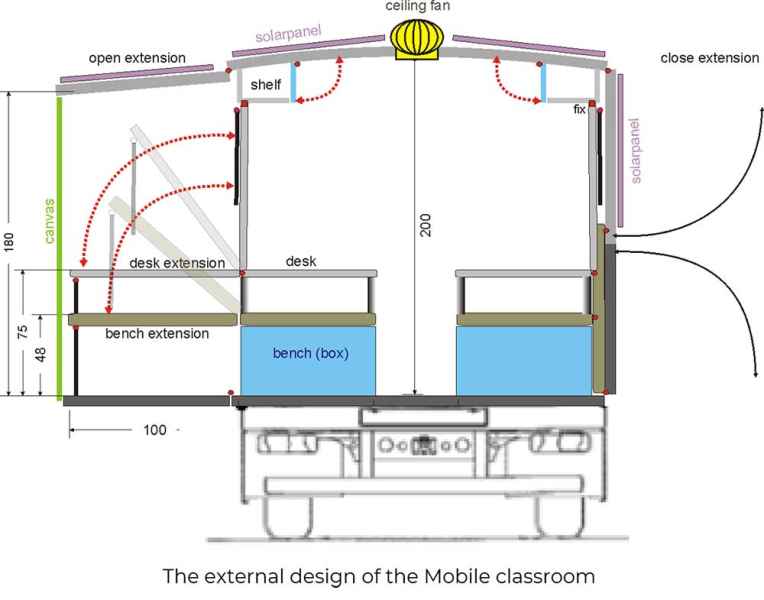
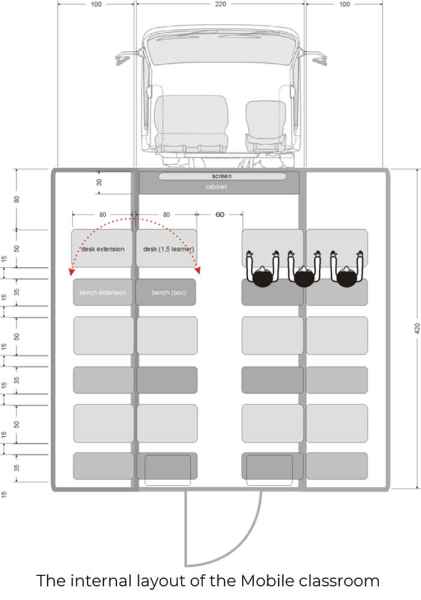
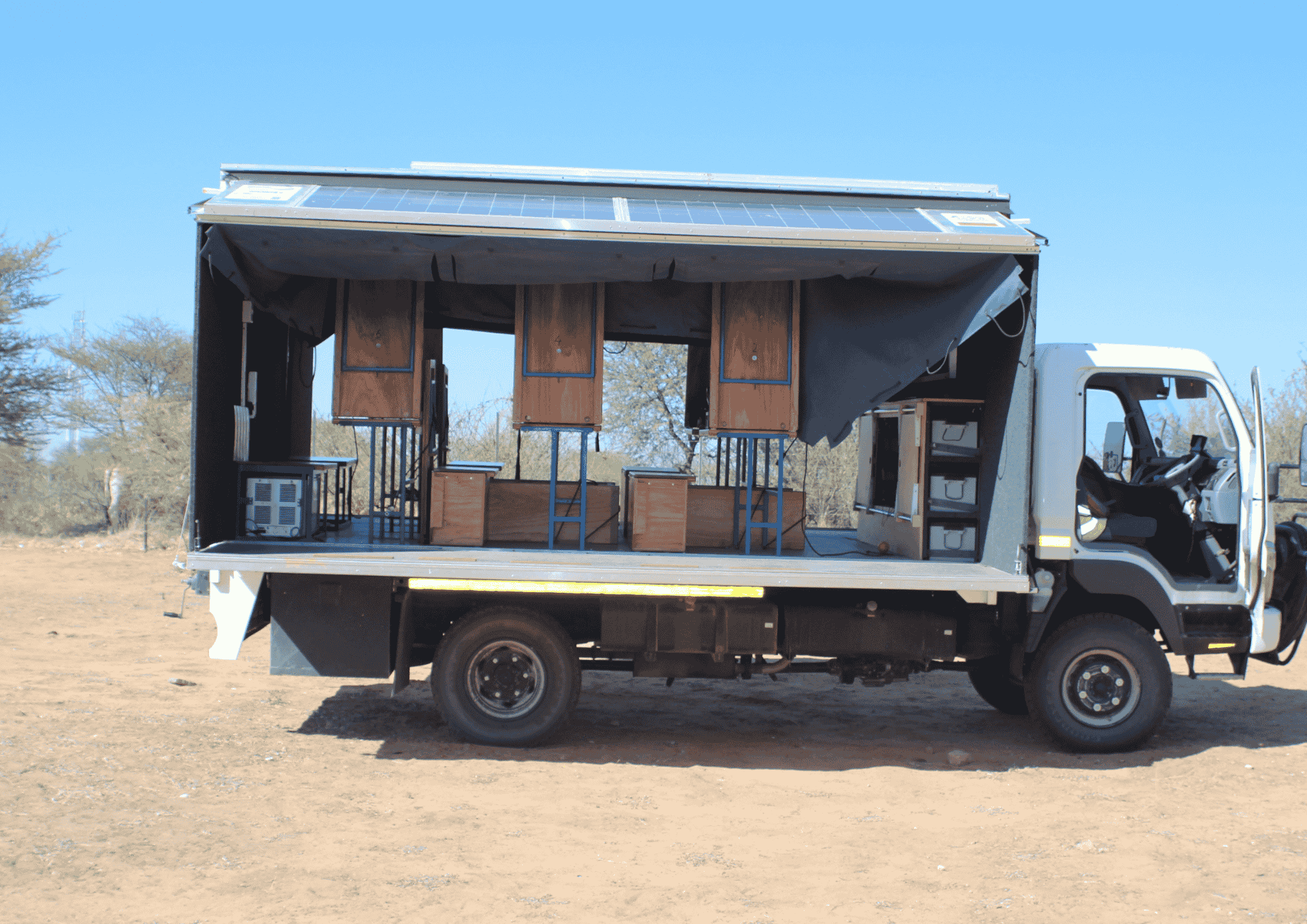
Teaching Methodology and Sustainability
The EduMobile promotes a blended learning approach by integrating digital media with field- based experiential education. The pedagogical approach follows a three-step learning cycle: learners are first introduced to LEARN key environmental concepts, then encouraged to UNDERSTAND these concepts in relation to their local environment, and finally guided to take informed ACTION. In each school visited, the program supports the establishment of environmental clubs, which serve as platforms for continued learning and learner-led initiatives, thereby enhancing the long-term impact of the program.
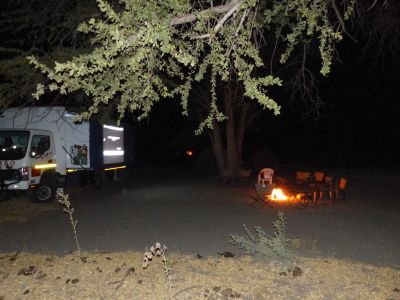
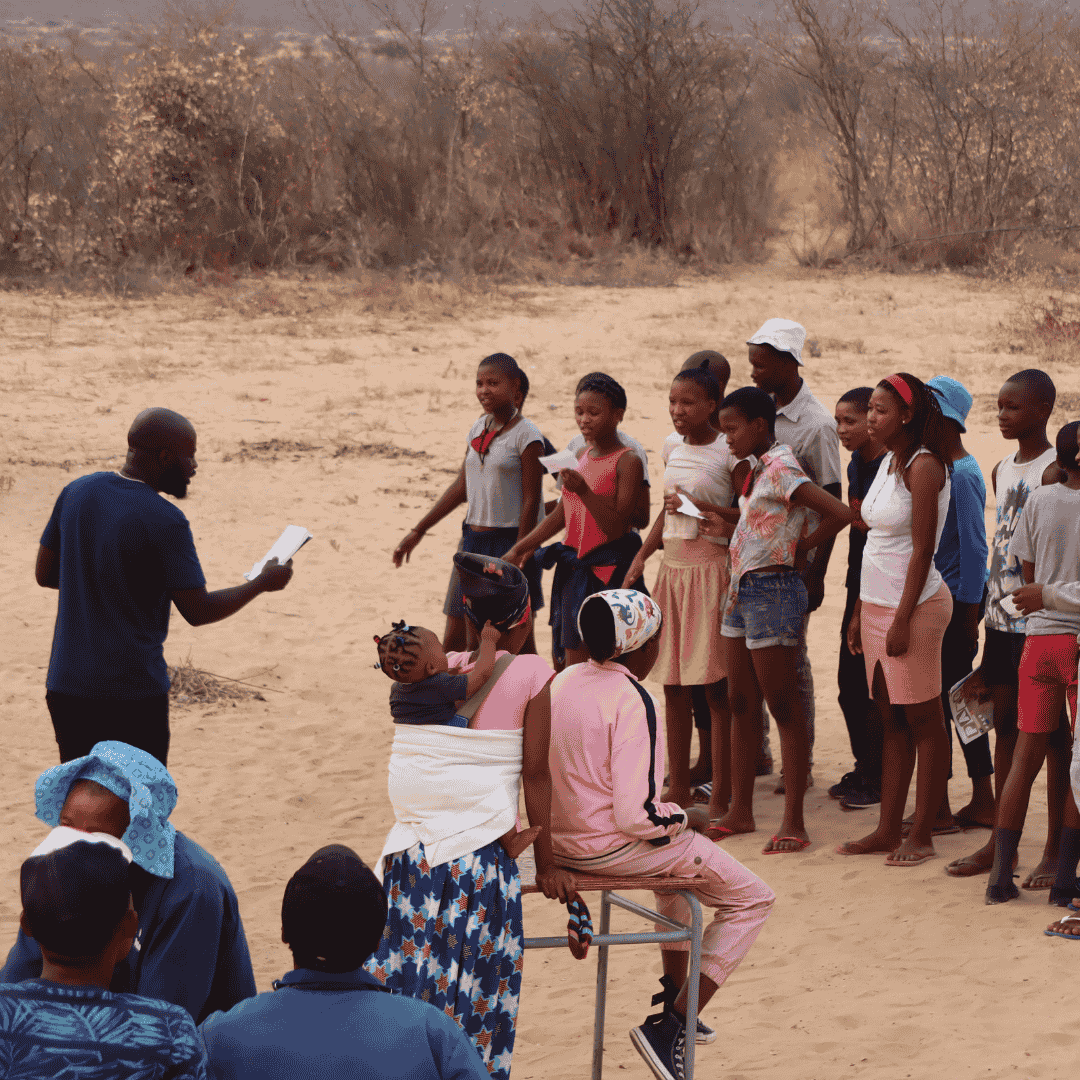
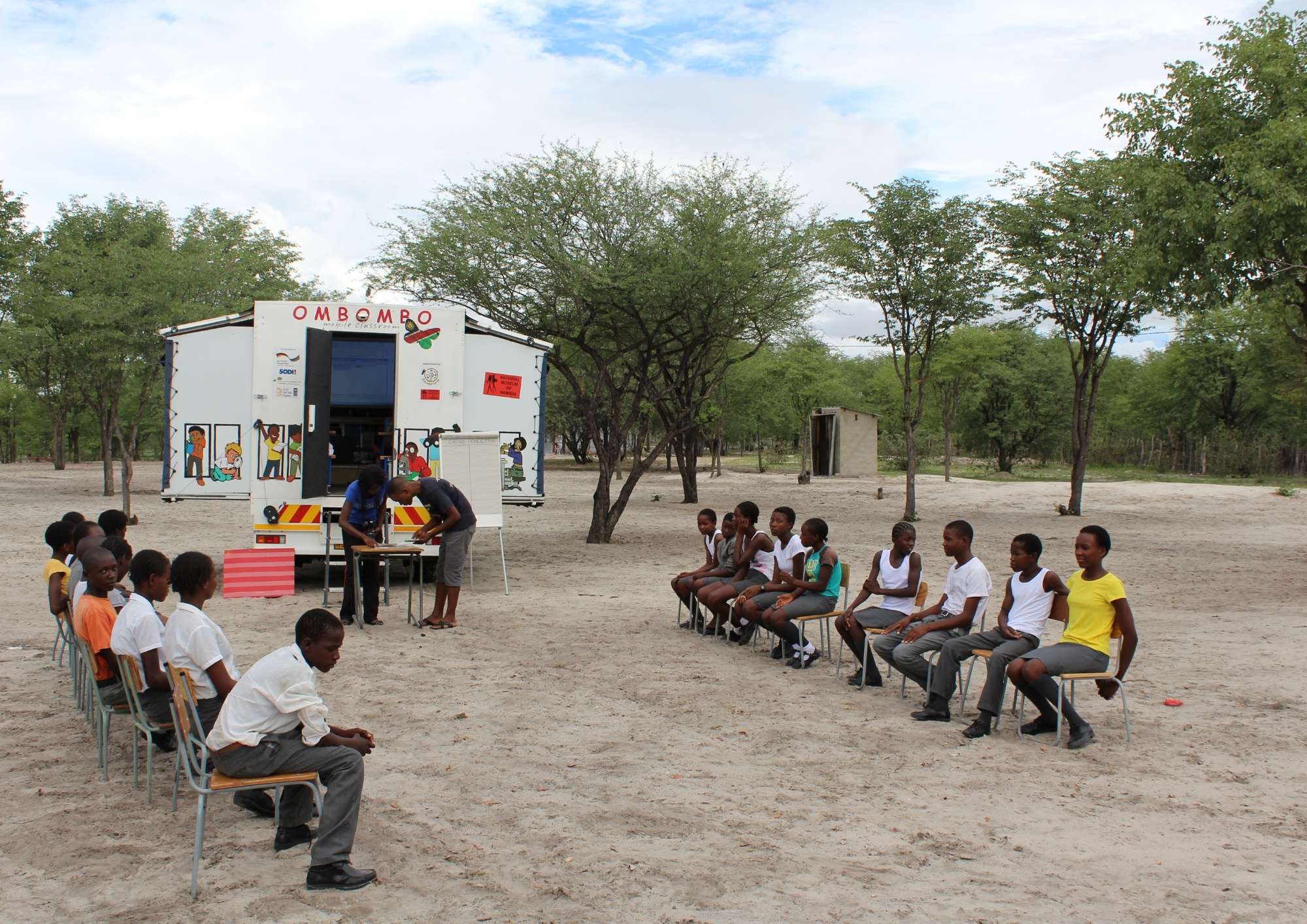
Collaborative Growth and Innovation
In 2016, the EduMobile partnered with the Hanns Seidel Foundation under the Promoting Renewable Energies in Namibia (PREN) initiative, adding renewable energy awareness and technology demonstrations to its scope. This partnership enriched the learning experience by integrating clean energy education into the environmental modules. Although this specific initiative concluded in 2019, EduVentures continues to explore partnerships and develop proposals to ensure the sustainability and expansion of the EduMobile initiative.
Reach and Impact
Since its launch, the EduMobile has reached more than 15,000 direct beneficiaries across Namibia and beyond. These include learners, teachers, youth, and broader community members who have participated in its programs. The project has engaged over 100 schools throughout Namibia and extended its outreach to three schools in neighbouring SADC countries, fostering cross-border collaboration in environmental education.
It has played a visible role in more than 30 national events and five regional gatherings, amplifying its presence and influence. Importantly, the EduMobile has also prioritized inclusive education by working with learners with hearing and visual impairments, ensuring that its educational offerings leave no one behind. Furthermore, it has provided out-of-school youth with training in agroecology and environmental stewardship, equipping them with skills for sustainable livelihoods.
Additionally, hundreds of learners have been supported through the EduMobile to participate in national science fairs and environmental clubs, cultivating a generation of young people who are both scientifically curious and environmentally conscious.
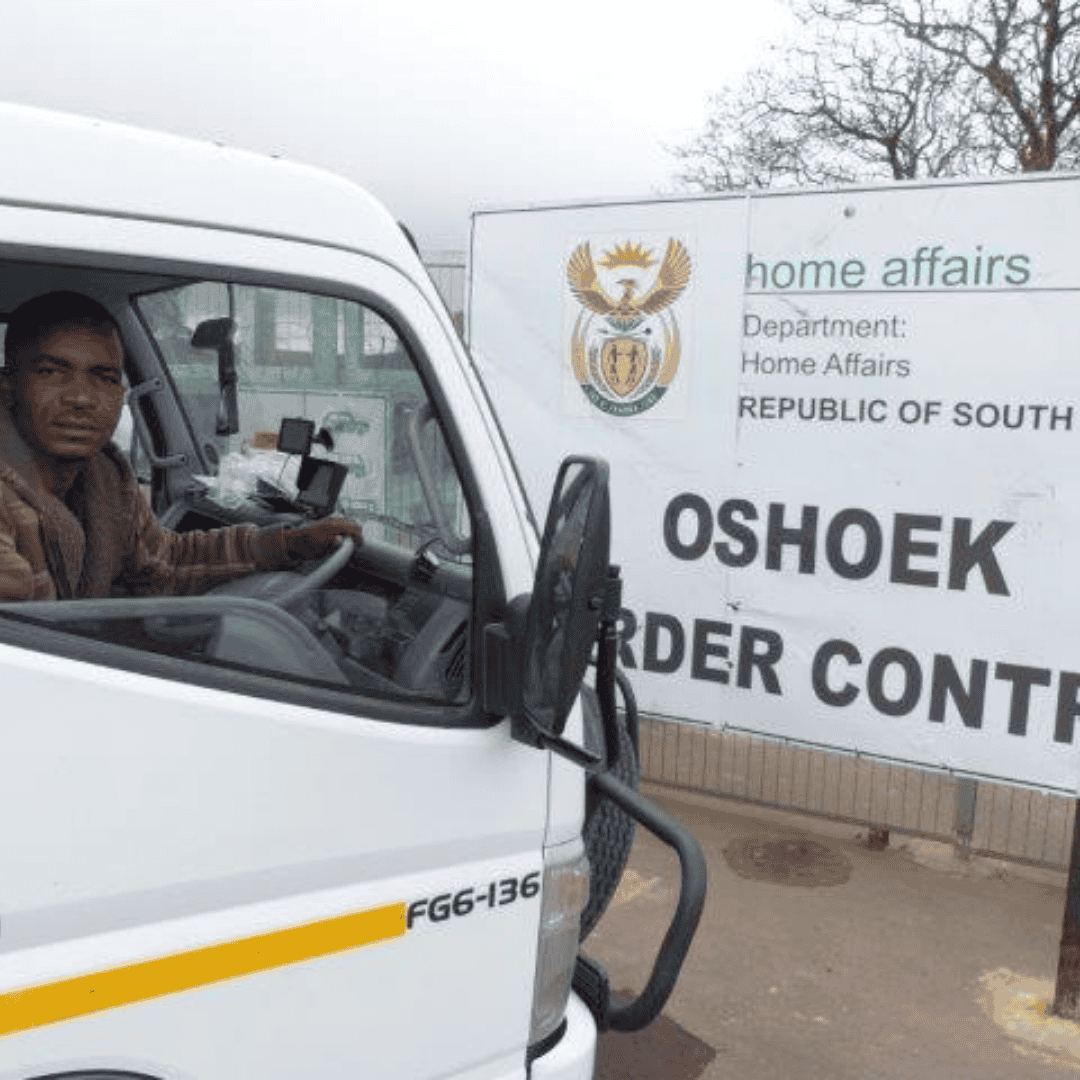
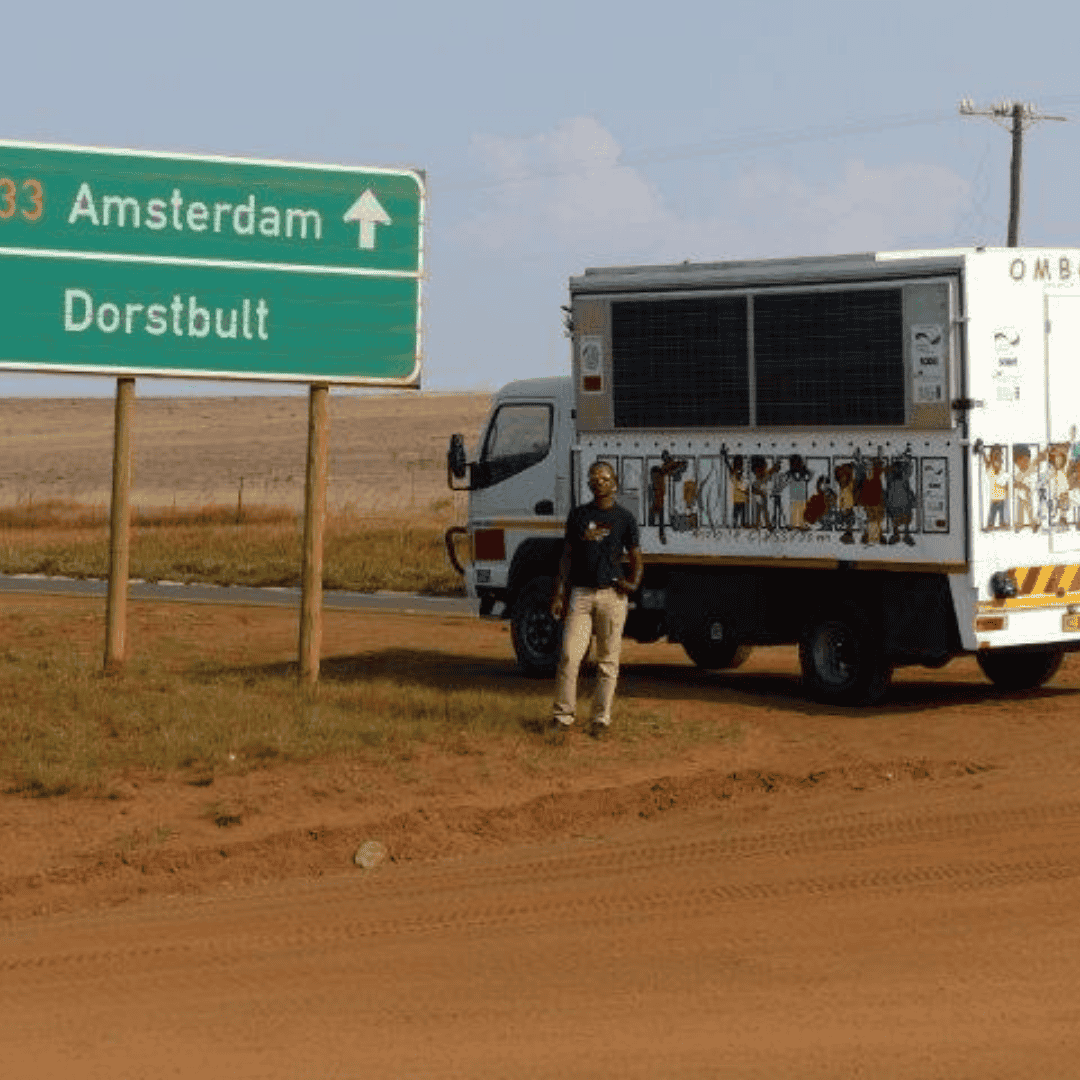
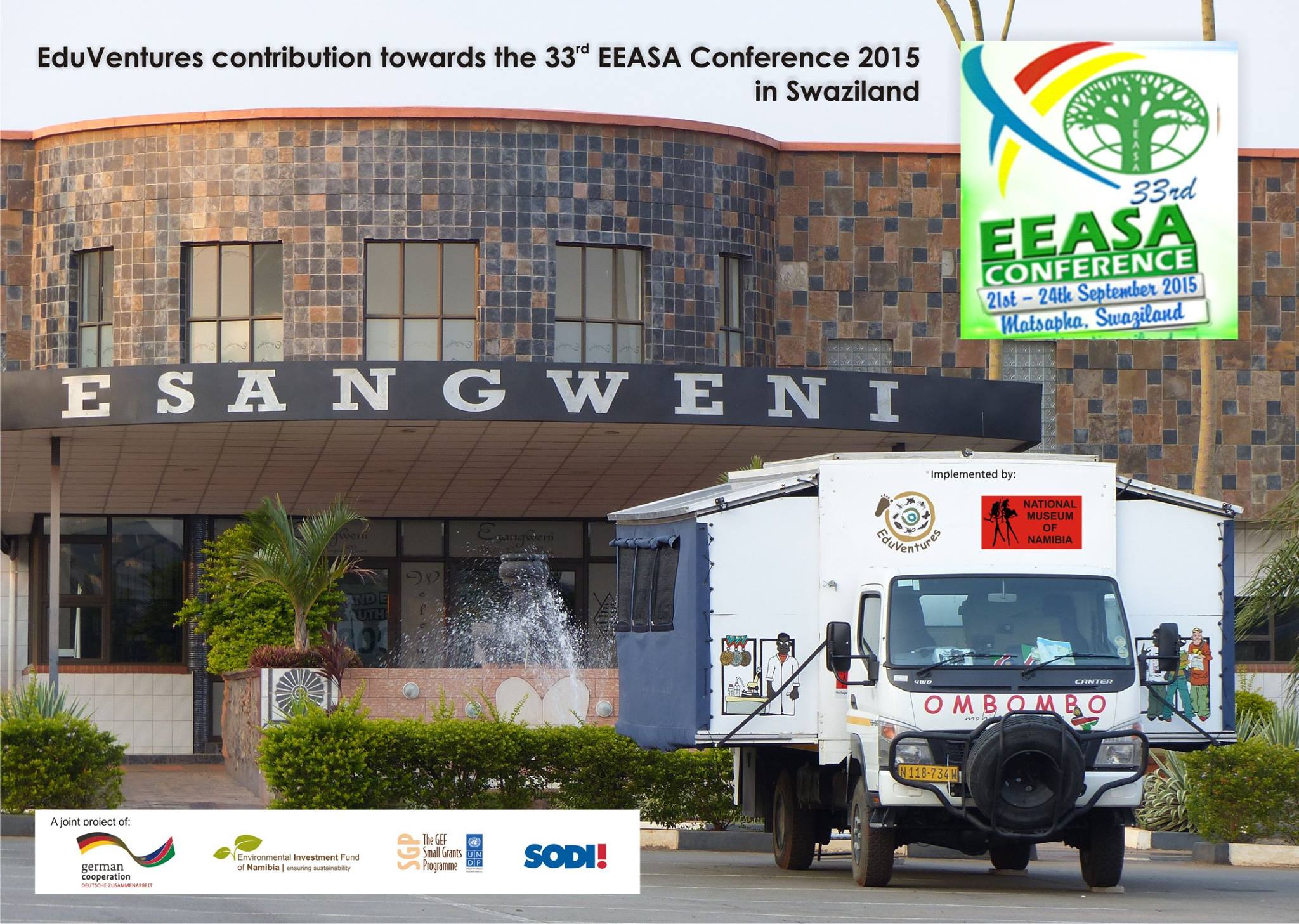
Looking Ahead
Guided by its commitment to “Learn – Understand – Act,” the EduMobile continues to be a vital tool in bringing environmental education to life in Namibia’s rural and underserved communities. As it looks to the future, EduVentures remains dedicated to expanding its reach, deepening its partnerships, and enhancing the quality and relevance of its programs to ensure that all Namibian learners have the opportunity to become informed and empowered environmental stewards. Our wish is to have more than one mobile classroom in Namibia!
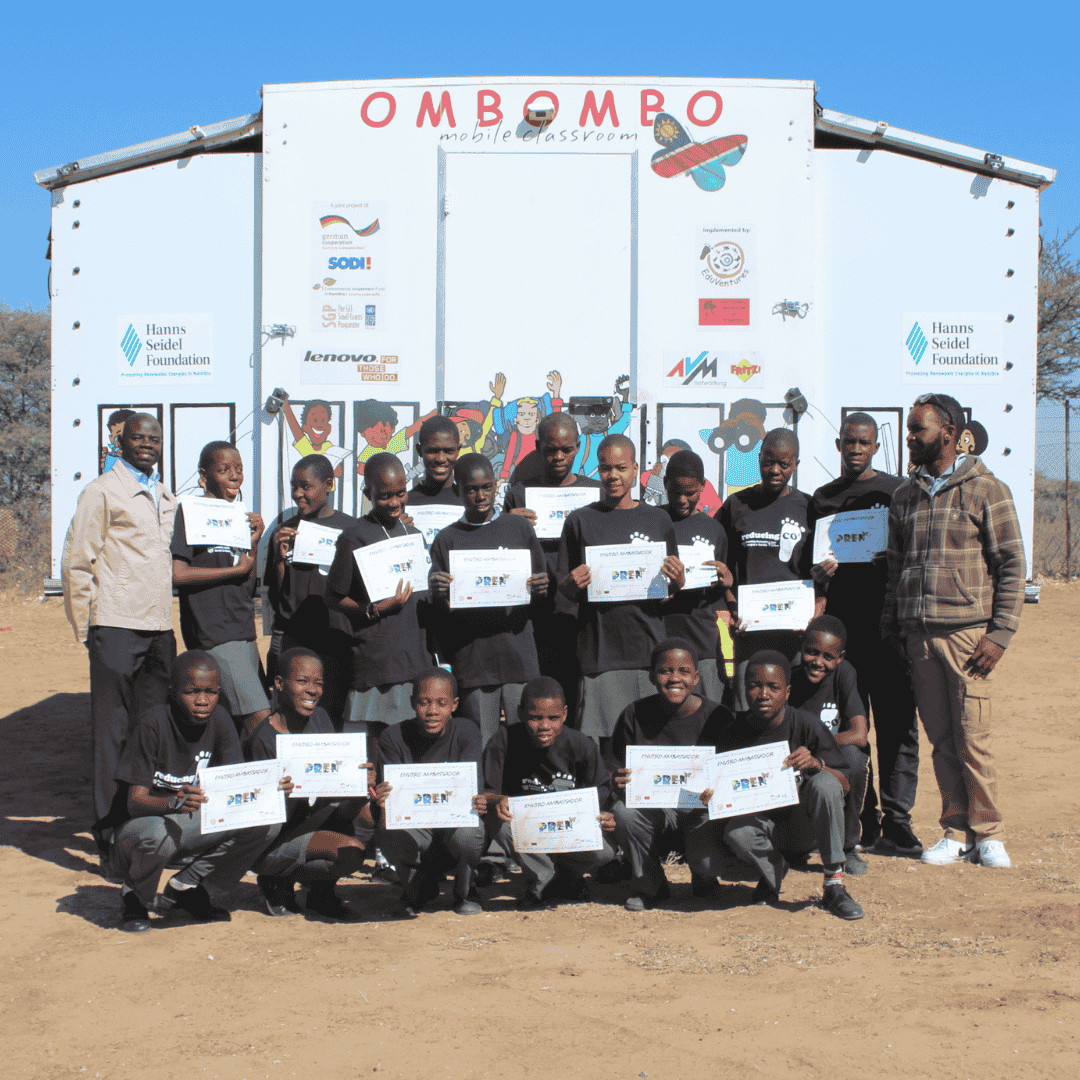
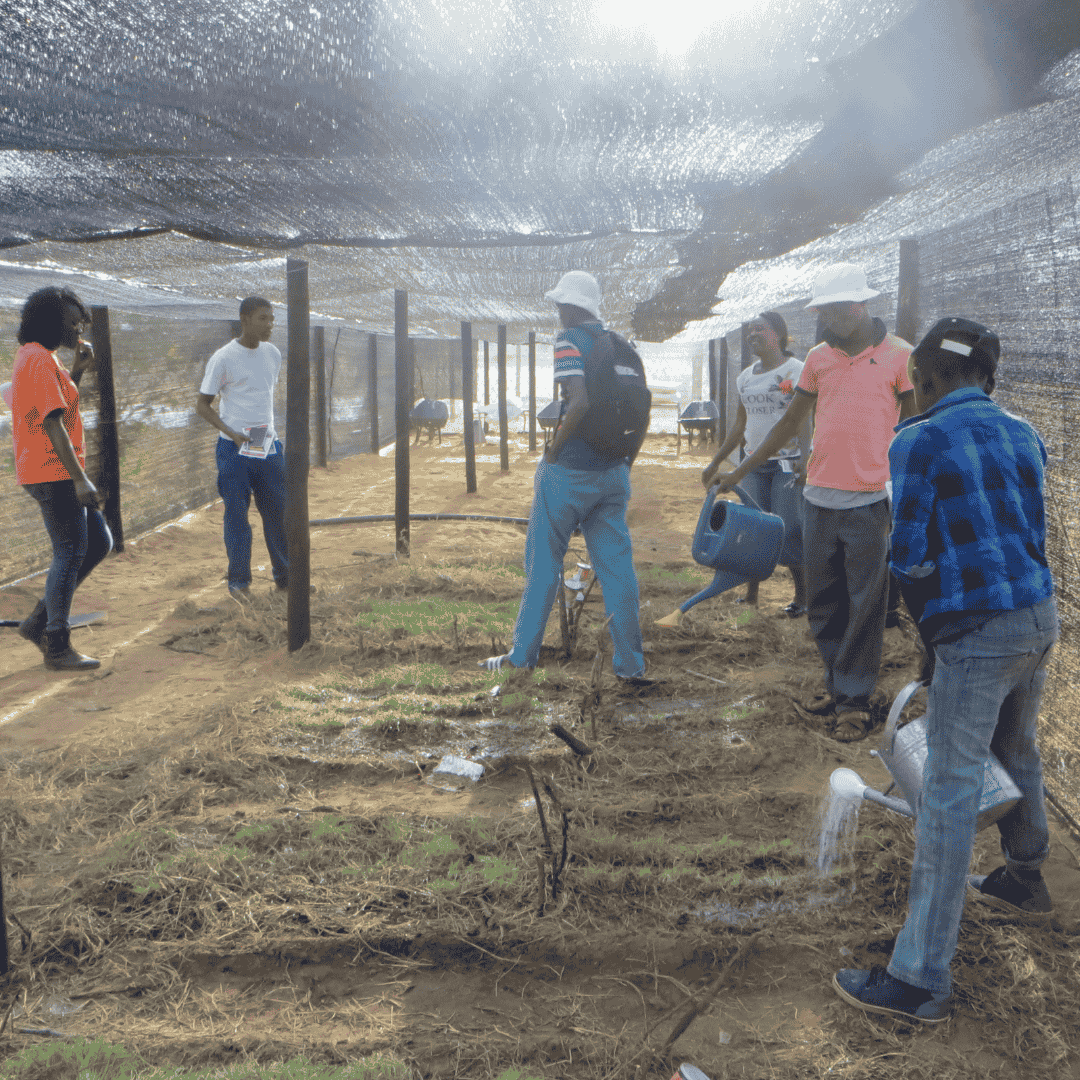
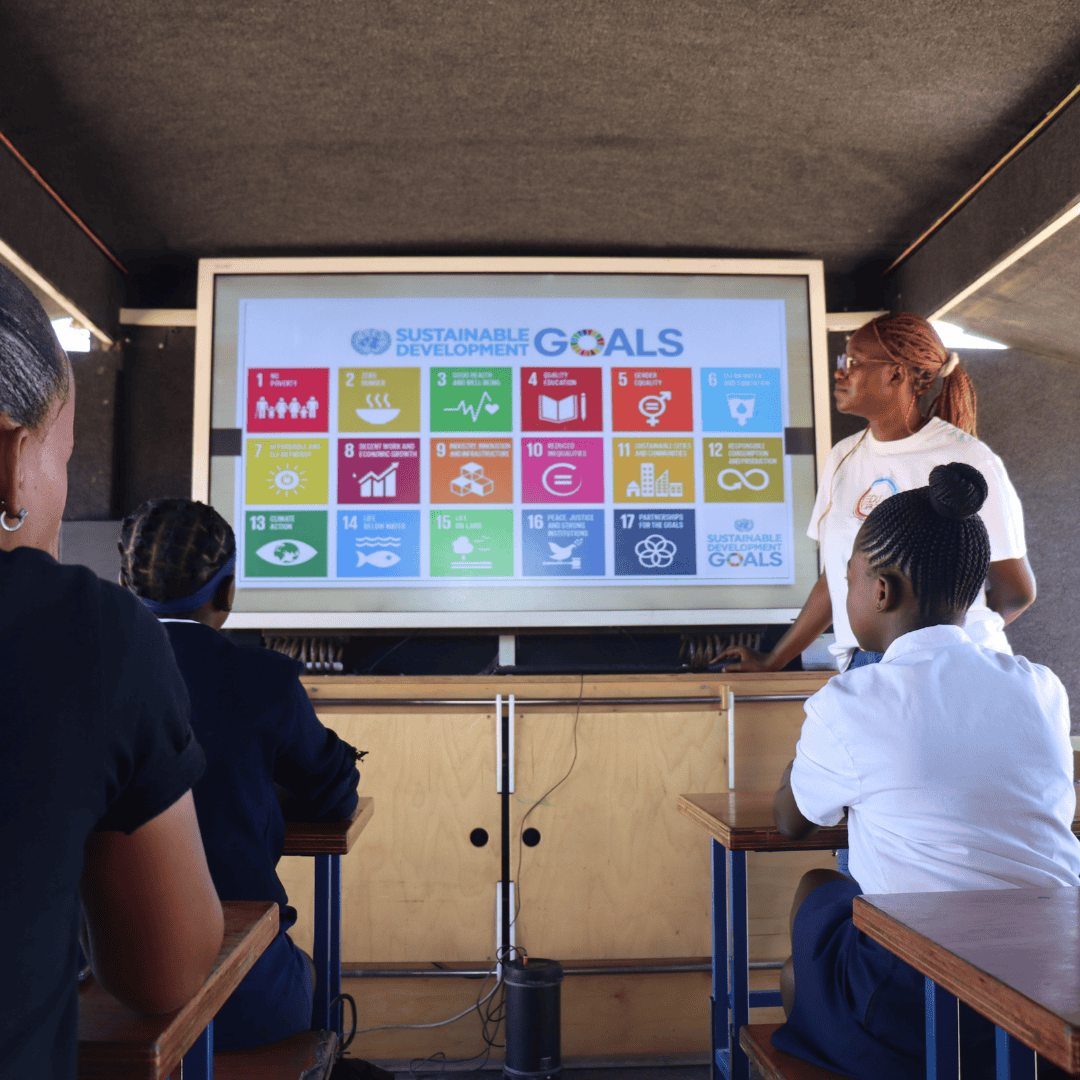
Click here to watch our full youtube video showcasing the mobile truck

